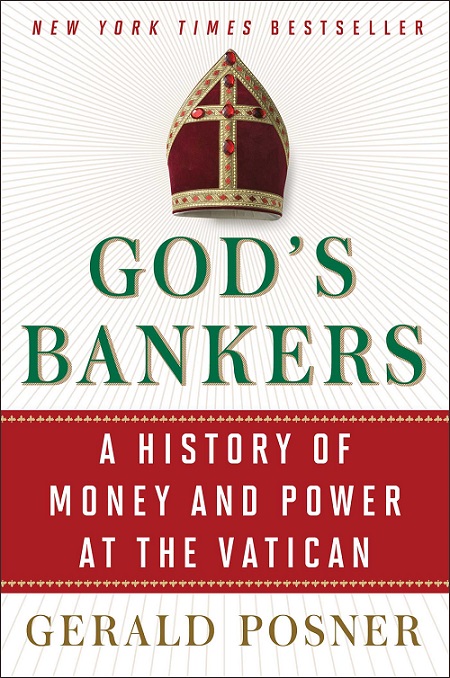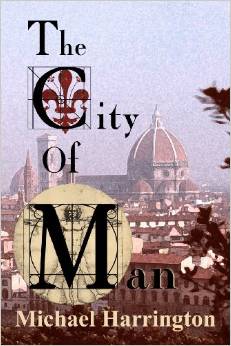
(Published by Simon Schuster – e-book from Amazon)
On June 18, 1982 at 7.30am a body was found hanging from Blackfriars Bridge in London. The body was wearing an expensive suit, which was misshapen from stones stuffed in the trouser pockets, half a brick stuffed inside his jacket and another half crammed in the pants. The body also carried an Italian passport in the name of Gian Roberto Calvini, had some $13,700 in British, Swiss and Italian currency and a $15,000 gold Patek Philippe watch was on his wrist. Some other papers and miscellanous items were also found. The passport turned out to be a fake using a variation of the man’s real name – he was the 62-year-old Roberto Calvi, an Italian banker, and Chairman and Managing Director of Milan’s Banco Ambrosiano (one of Italy’s largest private banks). He had gone missing from Italy one week previously, having jumped bail following a criminal fraud conviction in 1981, for which he was on bail pending an appeal. Calvi’s death, originating attributed to suicide, then found at inquiry to be a suspicious death, has never been solved.
So does this intricately woven investigative tale by Gerald Posner begin, an event which some may recall from their memory. What eventuated from the death of Calvi was a plethora of speculation, supposition and innuendo about the secrecy around the operations, wealth and dealings of the Vatican Bank, who the key players within the Vatican were in relation to the operations of the Bank and how far reaching were its activities.
In this book, Posner delves into the secretive and political inner workings of the Vatican, specifically in relation to money and its accumulation, and how it is that money has shaped and driven what the Vatican has seen as its divine mission over the centuries. Posner exposes how a religious institution which relied on donations from its faithful and the taxes it levied, went on to operate the powerful and secretive Vatican Bank with its complex web of offshore shell companies, and the dealings of the Bank with questionable businessmen, many of whom ended up in jail or dead.
I found this book riveting, and I have read quite a substantial amount of the literature around the death of Calvi and Vatican finances. Posner presents a brilliantly written and researched historical tale that is fascinating, disturbing, confronting and illuminating. The names Sindona, Marcinkus, de Strobel will become familiar to you as you read this book, along with that of Calvi, and you will discover how the various Popes overtime, influenced either by their silence, complicitness or outright support, the growth and tentacles of this network.
The book is detailed and does take some reading, but the reward is clear – a comprehensive, uncompromising exposé of an institution which Pope Francis now seeks to be above reproach. Whether he is able to achieve what some may regard as lofty ideal is yet to be seen. However, to gain an understanding of what he is seeking to do is the first step in understanding why it must be done, and Gerald Posner’s book is most certainly the key starting point.
A must read.










